Start your recovery right away.
Start your recovery right away. Contact Virtue Drug and Alcohol Recovery Center at 866-461-3339 to find a treatment program near you.
It’s difficult to admit that you, or someone you care about, have a problem with alcoholism. Alcohol detox and alcohol rehab is essential to the healing process for those struggling with alcohol addiction. On this page, you’ll learn everything you need to know about accessing the necessary care at an alcohol addiction recovery center.
Explore Virtue Recovery Center’s Alcohol Addiction Recovery Programs, available in Arizona, Texas, Nevada, and Oregon. Our tailored, comprehensive approach to alcohol addiction addresses every aspect of the disease, offering personalized treatments, evidence-based therapies, and holistic care. We’re committed to providing the tools and support needed for lasting sobriety and well-being, guiding each individual toward a healthier, fulfilling future.
Our alcohol addiction treatment programs define our exceptional approach at Virtue Recovery Center. Personalized treatment plans are tailored to meet individual needs, applying advanced evidence-based therapies with a focus on holistic, integrative care.
Our dedicated team of experts offers compassionate support, fostering a healing environment that encourages recovery and growth.
We emphasize community building and ongoing support, ensuring our clients have a solid foundation for long-term success and a sustained journey toward sobriety and well-being.
Addressing physical, emotional, and psychological aspects of addiction.
Tailored plans to meet individual needs.
Including counseling and support groups.
Integrated into individualized care for a well-rounded recovery.
Understanding that each person’s path to recovery is distinct.
Equipping clients with tools for long-term sobriety and success.
Aftercare services to assist in maintaining sobriety and facing life’s challenges.
At Virtue Recovery Center, we believe in a holistic and individualized approach to alcohol recovery.
Our method goes beyond treating symptoms, aiming to uncover and address the root causes of alcohol addiction.
By integrating various evidence-based therapies and holistic treatments, we ensure a comprehensive recovery experience.
Our approach is adaptive, evolving with each client’s journey to meet their changing needs and support their growth every step of the way.
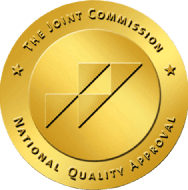
The Joint Commission is recognized as the nation's largest and only accreditor that spans the full continuum of care. Accreditation by The Joint Commission signifies that our facility meets the rigorous standards for quality and safety in healthcare.
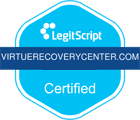
LegitScript Certification is crucial for healthcare providers operating online, including those specializing in addiction treatment. Being LegitScript-certified means we adhere to the highest standards of safety and compliance, ensuring that we operate legally and safely.

The National Association of Addiction Treatment Providers (NAATP) is a leading organization dedicated to providing support, advocacy, and resources to addiction treatment providers across the United States.
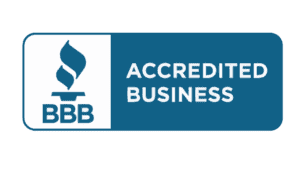
BBB Accreditation signifies our commitment to integrity, ethical business practices, and customer service excellence. As a BBB Accredited Business, we are part of a select group of companies that have committed to high standards and best practices in all areas of operation.
Dedicated to empowering individuals to overcome alcohol addiction, regain control of their lives, and achieve a future of health, happiness, and fulfillment.
Alcoholism, also known as alcohol dependency, is the non-clinical term for a chronic illness in which a person craves alcoholic drinks and cannot control their drinking. This condition also causes them to consume larger amounts to achieve the same effect as before and experience withdrawal symptoms when they stop drinking. The diagnostic term for alcoholism is alcohol use disorder (AUD).
Alcoholism can have a detrimental impact on both physical and mental health, as well as cause issues with relationships, work, and social life. This brain disorder can range from mild to severe, with lasting changes caused by alcohol misuse making individuals susceptible to relapse.
When evaluating whether someone has an alcohol use disorder, healthcare professionals refer to the Diagnostic and Statistical Manual of Mental Disorders, Fifth Edition (DSM-5). They use this manual to determine the severity of the disorder, if it is present, based on the number of symptoms a person exhibits. Mild AUD is characterized by 2-3 criteria, moderate by 4-5 criteria, and severe by 6 or more criteria.
Signs and symptoms include, but are not limited to, the following:
There is hope as alcohol recovery programs offer evidence-based treatments, such as behavioral therapies, mutual-support groups, and/or medications. Alcohol addiction treatment options are available to help individuals achieve and maintain recovery, regardless of the severity of the problem. Although many do recover, it’s not uncommon to experience setbacks during alcohol addiction recovery. Seeking professional help early on can help with alcohol relapse prevention.

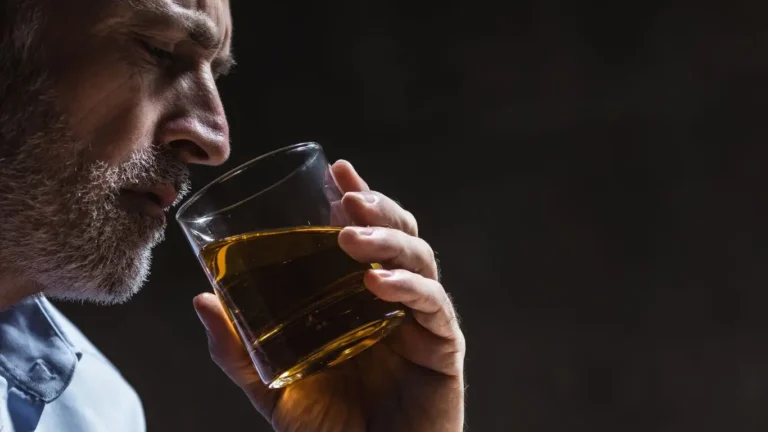
Alcoholism rehabilitation expenses can vary significantly, and many factors influence the cost, including your location, the type of treatment needed, insurance, and the credentials and experience of the healthcare provider. On average, a 30-day inpatient program may range from $5,000 to $20,000, while cognitive behavioral therapy sessions in an outpatient setting typically cost between $100 and $200. Call 866-806-3790 to learn more about the costs associated with our evidence-based alcohol treatment programs and our admissions process.
Going through alcohol withdrawals without the support of Medication-Assisted Treatment (MAT) can be an extremely challenging and potentially dangerous experience, especially for individuals with severe or long-term alcohol dependence. Withdrawal symptoms typically begin within a few hours to a few days after the last drink and can include anxiety, tremors, sweating, nausea, headaches, and insomnia. In more severe cases, individuals may experience delirium tremens (DTs), a life-threatening condition characterized by confusion, hallucinations, rapid heart rate, and seizures. Without MAT, managing these symptoms can be overwhelming, and the risk of serious complications, including death, is significantly higher. Medical supervision is often necessary to navigate this process safely, as the intensity of symptoms can push individuals toward relapse or result in dangerous health crises.
Alcohol withdrawals with Medication-Assisted Treatment (MAT) provide a safer and more controlled approach to detoxification. MAT involves the use of medications such as benzodiazepines to reduce the severity of withdrawal symptoms and prevent complications like seizures or delirium tremens. These medications help to stabilize the individual’s condition, making the withdrawal process more tolerable and significantly reducing the risks associated with alcohol detox. In addition to medication, individuals receiving MAT typically benefit from comprehensive medical supervision and supportive care, which can include hydration, nutritional support, and counseling. This holistic approach not only eases the physical symptoms of withdrawal but also supports mental and emotional well-being, increasing the likelihood of a successful detox and paving the way for ongoing recovery.
Discover the Powerful Transformations of Our Clients at Virtue
Alcohol rehabilitation centers typically follow a crucial set of steps in the recovery journey, starting with intake, then detox, followed by an alcohol recovery program, and finally, ongoing recovery. While each center’s approach may vary, they offer customizable alcohol addiction recovery programs to meet individual needs. The life skills and coping strategies learned during these programs are essential for maintaining sobriety.
A residential alcohol recovery program offers a transformative experience to overcome your addiction. In this structured and supportive environment, you’ll reside in a facility temporarily while receiving comprehensive treatment. The program may include detoxification, individual counseling, group therapy, evidence-based therapies, and 24/7 medical support that addresses underlying issues, develops coping strategies, and creates a solid foundation for lasting sobriety.
One of the advantages of a residential alcohol recovery program is the removal of external triggers and temptations. By residing in a controlled environment, you won’t have access to alcohol and can focus solely on your recovery. The structured nature of the program provides a predictable routine and helps establish healthy habits that can be carried forward into your life after rehab.
As you near the end of the program, an aftercare plan (often referred to as continuing care) is developed to support your continued sobriety through outpatient programs, support groups, and community resources.
In an inpatient alcohol recovery program, you’ll temporarily reside in a supportive and structured environment dedicated to your recovery and well-being. The program addresses addiction’s physical, psychological, and emotional aspects. With 24/7 medical and clinical alcohol addiction support, the program ensures your safety and comfort throughout the treatment process.
If necessary, there will be a medically supervised detoxification to assist with symptoms of alcohol withdrawal. Experienced counselors or therapists will provide individual counseling sessions to assist you in discovering the underlying reasons for your alcohol use and developing effective coping mechanisms.
An inpatient program employs evidence-based therapies, including cognitive-behavioral therapy (CBT), dialectical behavior therapy (DBT), and motivational interviewing (MI), to help you understand your thoughts and behavioral patterns. These therapies will provide healthier coping strategies and address any co-occurring mental health issues.
Group therapy sessions will allow you to connect with others on a similar path, offering mutual support and a sense of community. Additionally, the program may include holistic approaches such as mindfulness practices, exercise, and nutrition guidance to support your overall well-being.
In an inpatient alcohol recovery program, you can benefit from not being exposed to external triggers or temptations. You’ll be in a controlled environment where you won’t have access to alcohol, allowing you to focus solely on recovery. The structured program establishes healthy habits and routines you can apply to life after rehab.
As you near the end of the program, the treatment team will work with you to create a comprehensive aftercare plan. This plan may involve transitioning to an outpatient program, participating in support groups like Alcoholics Anonymous (AA), and accessing community resources to maintain sobriety and get ongoing support.
Outpatient alcohol recovery programs offer flexibility, allowing you to receive treatment while maintaining your daily routine. You can attend individual counseling sessions to explore the underlying causes of your alcohol use and develop effective coping strategies. You’ll have the flexibility to continue working, attend school, or fulfill family responsibilities while actively participating in treatment.
Programs incorporate evidence-based therapies such as cognitive-behavioral therapy (CBT), motivational interviewing (MI), group therapy, and alcohol relapse prevention techniques. These therapies equip you with the necessary skills to manage cravings, address triggers, and make positive changes in your behavior and thought patterns related to alcohol use. Outpatient programs also emphasize education about addiction and developing a personalized aftercare plan.
Outpatient programs provide access to community resources, support groups like Alcoholics Anonymous (AA), and other services that can supplement treatment and provide ongoing support in the journey toward long-term sobriety. Maintaining a strong commitment to attending sessions and actively engaging in the program is crucial to ensure the best possible recovery outcomes.
Overall, these programs are an opportunity to receive support and treatment while maintaining daily life.
Dual-diagnosis treatment programs are a specialized approach to addiction treatment that simultaneously addresses co-occurring substance use disorders and mental health disorders. The term “dual diagnosis” refers to the presence of both a substance use disorder and a mental health disorder that occur at the same time.
These programs aim to provide integrated care that simultaneously addresses both the addiction and the mental health condition, recognizing that they often interact and influence each other. Effective treatment requires addressing both conditions simultaneously.
Dual-diagnosis treatment programs typically offer a range of alcohol addiction interventions and services, including psychoeducation and medication management, tailored to meet your specific needs. By addressing both addiction and mental health disorders in an integrated and comprehensive manner, dual-diagnosis treatment can improve treatment outcomes and provide the necessary tools and support for lasting recovery and improved overall well-being.
These programs use a multidisciplinary approach to help you understand how your substance use and mental health are connected. They also teach strategies to manage these conditions and achieve a healthier, more balanced life.
Intensive outpatient programs provide comprehensive treatment with higher support and structure than traditional outpatient therapy. IOPs are designed to address substance use disorders while allowing you to maintain some flexibility in your daily life. It is well-suited for you if you require more intensive treatment but do not require 24/7 supervision and care.
You can expect to attend treatment several times weekly, typically for a few hours each session. These sessions will help you gain insights into the underlying causes of your addiction, develop coping mechanisms, and build a strong foundation for recovery. The treatment team will utilize evidence-based therapies similar to other alcohol recovery programs to help you learn valuable skills to manage cravings, identify triggers, and positively change your thoughts and behaviors related to alcohol use.
IOPs often emphasize peer support, allowing you to connect with others on a recovery journey. Group therapy sessions provide a supportive and understanding environment where you can share experiences, offer and receive encouragement, and learn from one another’s insights. Additionally, IOPs may provide supplemental services such as family therapy and specialized programs tailored to address co-occurring mental health conditions, if applicable.
The duration of an IOP varies depending on your individual needs and progress. As you near the end of the program, the treatment team will collaborate with you to create an aftercare plan, which may involve transitioning to less intensive outpatient therapy, participating in support groups like Alcoholics Anonymous (AA), and accessing community resources to support your continued sobriety.
In a holistic treatment program for alcoholism, you’ll experience a comprehensive approach focusing on healing your mind, body, and spirit. Holistic treatment recognizes that alcohol addiction affects multiple aspects of your well-being and aims to address all of them. You can expect to receive therapies and interventions that go beyond traditional methods.
These therapies may include mindfulness practices, meditation, yoga, art therapy, acupuncture, and other alternative approaches. This holistic approach helps you develop self-awareness, reduce stress, ease physical discomfort, and explore new avenues of self-expression and healing. They also prioritize physical health through nutrition guidance, exercise, and wellness activities. Nurturing your body will strengthen your overall well-being and support your recovery journey.
Additionally, holistic treatment programs often provide education on healthy lifestyle choices, stress management techniques, and coping skills. You will learn to cultivate a balanced, sustainable lifestyle supporting long-term sobriety.
Throughout the program, you’ll be supported by a team of professionals who understand the importance of treating you as a whole person, not just addressing the symptoms of addiction. They’ll work with you to create an individualized treatment plan that meets your unique needs and goals.
A residential alcohol recovery program offers a transformative experience to overcome your addiction. In this structured and supportive environment, you’ll reside in a facility temporarily while receiving comprehensive treatment. The program may include detoxification, individual counseling, group therapy, evidence-based therapies, and 24/7 medical support that addresses underlying issues, develops coping strategies, and creates a solid foundation for lasting sobriety.
One of the advantages of a residential alcohol recovery program is the removal of external triggers and temptations. By residing in a controlled environment, you won’t have access to alcohol and can focus solely on your recovery. The structured nature of the program provides a predictable routine and helps establish healthy habits that can be carried forward into your life after rehab.
As you near the end of the program, an aftercare plan (often referred to as continuing care) is developed to support your continued sobriety through outpatient programs, support groups, and community resources.
In an inpatient alcohol recovery program, you’ll temporarily reside in a supportive and structured environment dedicated to your recovery and well-being. The program addresses addiction’s physical, psychological, and emotional aspects. With 24/7 medical and clinical alcohol addiction support, the program ensures your safety and comfort throughout the treatment process.
If necessary, there will be a medically supervised detoxification to assist with symptoms of alcohol withdrawal. Experienced counselors or therapists will provide individual counseling sessions to assist you in discovering the underlying reasons for your alcohol use and developing effective coping mechanisms.
An inpatient program employs evidence-based therapies, including cognitive-behavioral therapy (CBT), dialectical behavior therapy (DBT), and motivational interviewing (MI), to help you understand your thoughts and behavioral patterns. These therapies will provide healthier coping strategies and address any co-occurring mental health issues.
Group therapy sessions will allow you to connect with others on a similar path, offering mutual support and a sense of community. Additionally, the program may include holistic approaches such as mindfulness practices, exercise, and nutrition guidance to support your overall well-being.
In an inpatient alcohol recovery program, you can benefit from not being exposed to external triggers or temptations. You’ll be in a controlled environment where you won’t have access to alcohol, allowing you to focus solely on recovery. The structured program establishes healthy habits and routines you can apply to life after rehab.
As you near the end of the program, the treatment team will work with you to create a comprehensive aftercare plan. This plan may involve transitioning to an outpatient program, participating in support groups like Alcoholics Anonymous (AA), and accessing community resources to maintain sobriety and get ongoing support.
Outpatient alcohol recovery programs offer flexibility, allowing you to receive treatment while maintaining your daily routine. You can attend individual counseling sessions to explore the underlying causes of your alcohol use and develop effective coping strategies. You’ll have the flexibility to continue working, attend school, or fulfill family responsibilities while actively participating in treatment.
Programs incorporate evidence-based therapies such as cognitive-behavioral therapy (CBT), motivational interviewing (MI), group therapy, and alcohol relapse prevention techniques. These therapies equip you with the necessary skills to manage cravings, address triggers, and make positive changes in your behavior and thought patterns related to alcohol use. Outpatient programs also emphasize education about addiction and developing a personalized aftercare plan.
Outpatient programs provide access to community resources, support groups like Alcoholics Anonymous (AA), and other services that can supplement treatment and provide ongoing support in the journey toward long-term sobriety. Maintaining a strong commitment to attending sessions and actively engaging in the program is crucial to ensure the best possible recovery outcomes.
Overall, these programs are an opportunity to receive support and treatment while maintaining daily life.
Dual-diagnosis treatment programs are a specialized approach to addiction treatment that simultaneously addresses co-occurring substance use disorders and mental health disorders. The term “dual diagnosis” refers to the presence of both a substance use disorder and a mental health disorder that occur at the same time.
These programs aim to provide integrated care that simultaneously addresses both the addiction and the mental health condition, recognizing that they often interact and influence each other. Effective treatment requires addressing both conditions simultaneously.
Dual-diagnosis treatment programs typically offer a range of alcohol addiction interventions and services, including psychoeducation and medication management, tailored to meet your specific needs. By addressing both addiction and mental health disorders in an integrated and comprehensive manner, dual-diagnosis treatment can improve treatment outcomes and provide the necessary tools and support for lasting recovery and improved overall well-being.
These programs use a multidisciplinary approach to help you understand how your substance use and mental health are connected. They also teach strategies to manage these conditions and achieve a healthier, more balanced life.
Intensive outpatient programs provide comprehensive treatment with higher support and structure than traditional outpatient therapy. IOPs are designed to address substance use disorders while allowing you to maintain some flexibility in your daily life. It is well-suited for you if you require more intensive treatment but do not require 24/7 supervision and care.
You can expect to attend treatment several times weekly, typically for a few hours each session. These sessions will help you gain insights into the underlying causes of your addiction, develop coping mechanisms, and build a strong foundation for recovery. The treatment team will utilize evidence-based therapies similar to other alcohol recovery programs to help you learn valuable skills to manage cravings, identify triggers, and positively change your thoughts and behaviors related to alcohol use.
IOPs often emphasize peer support, allowing you to connect with others on a recovery journey. Group therapy sessions provide a supportive and understanding environment where you can share experiences, offer and receive encouragement, and learn from one another’s insights. Additionally, IOPs may provide supplemental services such as family therapy and specialized programs tailored to address co-occurring mental health conditions, if applicable.
The duration of an IOP varies depending on your individual needs and progress. As you near the end of the program, the treatment team will collaborate with you to create an aftercare plan, which may involve transitioning to less intensive outpatient therapy, participating in support groups like Alcoholics Anonymous (AA), and accessing community resources to support your continued sobriety.
In a holistic treatment program for alcoholism, you’ll experience a comprehensive approach focusing on healing your mind, body, and spirit. Holistic treatment recognizes that alcohol addiction affects multiple aspects of your well-being and aims to address all of them. You can expect to receive therapies and interventions that go beyond traditional methods.
These therapies may include mindfulness practices, meditation, yoga, art therapy, acupuncture, and other alternative approaches. This holistic approach helps you develop self-awareness, reduce stress, ease physical discomfort, and explore new avenues of self-expression and healing. They also prioritize physical health through nutrition guidance, exercise, and wellness activities. Nurturing your body will strengthen your overall well-being and support your recovery journey.
Additionally, holistic treatment programs often provide education on healthy lifestyle choices, stress management techniques, and coping skills. You will learn to cultivate a balanced, sustainable lifestyle supporting long-term sobriety.
Throughout the program, you’ll be supported by a team of professionals who understand the importance of treating you as a whole person, not just addressing the symptoms of addiction. They’ll work with you to create an individualized treatment plan that meets your unique needs and goals.
For those seeking alcohol rehab, the cost can often be a significant obstacle if you don’t have insurance coverage. However, treatment centers are aware of this issue and are willing to collaborate with patients to ensure access to necessary care, regardless of their financial or insurance status. The fees for each center vary, and the payment options will depend on your specific treatment needs.
At Virtue Recovery Center, we firmly believe that cost should never be a barrier to receiving quality and potentially life-saving treatment for alcohol addiction. Please call 866-461-3339 to speak with one of our compassionate financial services team members, who is dedicated to helping you create a financial plan that will enable you to access the care you need.
Many insurance providers provide coverage for alcohol rehabilitation. The level of coverage may vary depending on the insurance provider, policy, and other factors. Fortunately, the Mental Health Parity and Addiction Equity Act mandates that insurance plans must provide the same level of coverage for mental health and substance abuse treatment as they do for physical health conditions.
Reviewing the details of your insurance policy to fully comprehend its coverage is crucial. Some policies may have limitations on the number of therapy sessions covered or pre-authorization requirements. Additionally, specific networks of preferred providers may be required by certain plans. In addition, different insurance plans may cover different therapy or counseling methods.
To learn more, call our free hotline number on 866-461-3339. We can review your rehab insurance benefits with you and explain any limitations or requirements.
Virtue Recovery Center treatment facilities work closely with most major insurance companies, including Aetna, Blue Cross Blue Shield, Cigna, HealthSmart, Magellan, MultiPlan, and TriWest. Many insurance providers have deemed our centers “centers of excellence,” and we’re proud to be recognized by multiple insurance providers for our leadership, best practices, research, support, and training in the addiction treatment field.
Call 866-461-3339 to verify your insurance benefits for alcohol addiction therapy today.
Recovering from alcohol use disorder (AUD) can be difficult, but there are safe and effective options, such as medication-assisted treatment (MAT). This treatment involves taking medication that reduces alcohol cravings and discourages alcohol use. When combined with counseling and other evidence-based therapies, MAT can be a significant component of alcohol recovery. The goal of using medications to aid in alcohol addiction rehabilitation is to reduce alcohol intake, prevent relapse, and improve overall well-being by addressing the physiological and psychological aspects of the disorder. It’s important to note that medications may only be prescribed based on your individual needs and the severity of your condition. The three most commonly used and FDA-approved drugs for medication-assisted treatment of alcohol addiction are disulfiram, naltrexone, and acamprosate. These medications are often combined with counseling and behavioral therapies to provide a comprehensive approach.
Disulfiram, also known as Antabuse, is a medication that blocks an enzyme called aldehyde dehydrogenase, which breaks down alcohol in the body. This leads to unpleasant side effects as a deterrent to drinking alcohol. Antabuse is typically prescribed if you have already undergone alcohol detoxification and are committed to remaining sober. When someone drinks alcohol while taking disulfiram, the blocked enzyme causes a buildup of acetaldehyde, a toxic substance, in the body. This can result in uncomfortable symptoms like flushing, nausea, vomiting, headache, rapid heartbeat, dizziness, and significant discomfort. It’s important to take as prescribed and under the supervision of a healthcare professional. To avoid severe reactions, adhere to the medication and abstain from alcohol completely. It’s also essential to avoid any products containing alcohol, including certain medications, mouthwashes, and even non-alcoholic beverages that have undergone fermentation. Drinking alcohol while on disulfiram can be life-threatening. Common disulfiram side effects may include:
Naltrexone is a non-addictive medication that does not cause withdrawal symptoms when discontinued. It is not prone to abuse or diversion. By attaching to the body’s endorphin receptors, naltrexone blocks the effects and sensations of alcohol, which reduces the urge to drink and limits the amount of alcohol consumed. For those who have quit drinking, taking naltrexone can help you stay sober. Typically, the treatment period for naltrexone is three to four months, but it’s recommended to continue seeking medical attention even after completing it. Naltrexone can be administered in tablet form (ReVia and Depade) or via injection (Vivitrol). Like all medications, combining naltrexone treatment with counseling and a comprehensive recovery plan will result in optimal effectiveness. The common side effects of taking naltrexone for alcohol use disorder are as follows:
Acamprosate, also known as Campral, is a treatment that can help stabilize brain chemistry and reduce alcohol cravings. Unlike disulfiram, which can cause adverse effects after drinking alcohol, acamprosate works by interacting with neurotransmitter systems in the brain, specifically glutamate, which is associated with alcohol dependency. By restoring the balance of chemicals in the brain that are disrupted by chronic alcohol use, acamprosate can help those struggling with alcohol addiction. This medication is recommended for those who have completed the initial withdrawal phase of the stages of alcohol recovery. Acamprosate does not alleviate withdrawal symptoms when someone stops drinking alcohol. It has not been proven effective for those who continue to drink or misuse prescription medications or street drugs while drinking heavily. Side effects of acamprosate are generally mild, including diarrhea, nausea, sweating, dry mouth, and changes in appetite. As always, adhere to your healthcare provider’s instructions while taking this medication.
Recovery from alcohol misuse and addiction is a lifelong process, and ongoing support and maintenance are often crucial for sustained sobriety. The treatment duration can vary depending on several factors, including your specific needs, the severity of your alcohol addiction, and the treatment approach. Treatment length can range from a few weeks to several months or longer. Below are some general guidelines for the duration of different types of alcohol recovery programs:
Couples can participate in alcohol rehab together, depending on certain conditions. These programs aim to assist both individuals struggling with alcohol abuse while also addressing relationship dynamics and co-dependency issues. It is important to note that not all rehab centers offer couple-focused programs, so couples should conduct research and select a program that meets their specific needs. More information: Drug and Alcohol Addiction Rehab for Couples Near Me
Whether or not someone might lose their job for attending rehab depends on various factors, such as local laws and employer rules. Certain jurisdictions offer legal protections to prevent discrimination against individuals seeking treatment, such as the Americans with Disabilities Act (ADA) and the Family and Medical Leave Act (FMLA). Despite these protections, a person’s specific situation and work performance could still affect their job security. Additionally, some employers may have their own policies in place to support employees seeking treatment. Speaking with an employment attorney and researching local labor laws can help you better understand your rights. More information: How To Go To Rehab Without Losing Your Job
Whether visitors are allowed at an alcohol recovery center depends on the policies and regulations of each facility. Generally, many rehab centers have guidelines restricting or regulating visitation to ensure a therapeutic and focused environment for those undergoing treatment. These policies are designed to minimize potential distractions, maintain privacy, and promote the alcohol recovery process. Visitors may be subject to certain restrictions, such as designated visiting hours, limited visitation duration, and adherence to specific rules or guidelines set by the rehab center. Contact the rehab center(s) directly to inquire about their policies and applicable requirements or restrictions. More information: Drug and Alcohol Rehab Centers Near Me That Allow Family & Visitors
Alcohol rehabilitation centers typically have pet policies, which can vary between facilities. Some centers may accommodate therapy animals or allow visitation with pets under specific circumstances. However, most don’t permit patients to bring their pets for their stay. This is primarily due to concerns surrounding hygiene, allergies, safety, and disruptions to the therapeutic environment. You can check with the specific rehab center you are considering to ask about their pet policies and any potential exceptions or alternatives. More information: Addiction Rehab Centers Near Me That Allow Pets, Cats, and Dogs
Cell phone policies in rehab centers can vary. Some centers may limit or prohibit cell phone use to uphold their focused and therapeutic environment, while others may allow supervised or controlled use during designated times or for specific purposes, like contacting family or participating in treatment-related activities. These restrictions are in place to reduce distractions, protect privacy, and prevent triggers or negative influences that can negatively influence recovery. More information: Drug and Alcohol Rehab Centers Near Me That Allow Cell Phones
Residential rehab programs that cater to the unique needs of pregnant women are available. These programs offer holistic care and support, which includes medical attention, addiction treatment, and therapy, to ensure the well-being of both the mother and the unborn child. These programs provide prenatal support and addiction treatment customized to the specific circumstances of pregnant women. More information: Rehab Centers For Pregnant Women and Mothers Near Me
If you’re considering inpatient rehab, keep in mind that requirements can vary. Typically, it’s necessary to have a substance abuse or addiction issue that requires intensive care, a history of unsuccessful outpatient treatment, and a need for a structured and supportive environment. Other factors, such as co-occurring mental health conditions, a high risk of relapse, and an unsupportive home environment, can also affect the decision. Since each rehab center has its own specific criteria, contacting them directly or speaking with a healthcare professional for accurate information is advised. Call 866-806-3790 to learn more about our criteria for inpatient rehab. More information: Rehab Admissions and Intake Process Near Me
As you embark on the alcohol recovery and rehabilitation process, it can be helpful to understand the various stages involved. Each step plays a crucial role in your journey toward sustained sobriety and personal growth. While the process can vary from center to center, below is an in-depth and general overview of the alcohol recovery and rehabilitation process: The first stage involves a comprehensive assessment and intake conducted by healthcare professionals who will evaluate your alcohol use, medical history, mental health, and other relevant factors to develop an individualized treatment plan. This stage may include interviews, questionnaires, and physical examinations. If necessary, the next stage involves the process of alcohol detoxification, during which your body clears itself of alcohol and adjusts to functioning without it. This stage often includes medical supervision to manage withdrawal symptoms and ensure your safety and comfort. While detoxification primarily focuses on medical management, you may receive supportive therapy to address any psychological or emotional challenges that arise during this period. Therapies like cognitive-behavioral therapy (CBT) or motivational interviewing (MI) can assist you in understanding the detoxification process and preparing for the subsequent stages of treatment. After detoxification, you enter a stage of early abstinence where you abstain from alcohol and begin to stabilize physically and emotionally. This stage focuses on developing coping strategies, addressing cravings, and building a foundation for recovery. Individual and ongoing therapy sessions offer a safe and confidential space to explore underlying issues related to alcohol use, such as trauma, stress, or co-occurring mental health disorders. Group therapy provides a supportive environment to connect, share experiences, and learn from each other. Therapeutic modalities like dialectical behavior therapy (DBT), acceptance and commitment therapy (ACT), or family therapy may be utilized to address specific needs. Individual counseling sessions and group therapy play significant roles in recovery. For example, cognitive-behavioral therapy helps you to identify and modify unhealthy thought patterns and behaviors related to alcohol use, while motivational enhancement therapy can help increase your motivation for change and strengthen your commitment to sobriety. As you approach the final stage of your recovery, your focus shifts towards maintaining your long-term sobriety and overall well-being. This stage involves transitioning to maintenance and aftercare, which entails developing a plan to prevent relapse and provide ongoing support. Depending on your individual treatment plan and program structure, your aftercare plan may include continued therapy sessions (either individual or group-based), participation in support groups such as Alcoholics Anonymous (AA), and accessing community resources. Therapy sessions will help you maintain focus and reinforce the skills learned during treatment. Participation in support groups provides ongoing peer support and accountability. You may also integrate holistic approaches such as mindfulness, meditation, or exercise into your aftercare plan to support your overall well-being. Additionally, medication-assisted treatment (MAT), the use of medications alongside therapy and counseling, can be incorporated at various stages of alcohol recovery, depending on your needs and the treatment plan. MAT is an alcohol addiction support process helpful in reducing cravings, minimizing withdrawal symptoms, and preventing relapse. Your active engagement in the treatment program and all the stages of alcohol recovery can significantly impact your success. Remember, the specific therapy methods and stages of alcohol recovery may vary based on your individual needs and goals. The ultimate goal of this stage is to provide comprehensive support, equip you with effective tools and strategies, and help you build a fulfilling life in recovery.
Each treatment center has specific admission procedures, so following their guidelines is essential. Admitting yourself to alcohol addiction rehabilitation requires commitment and a willingness to embrace the treatment process. By taking these steps, you’re embarking on a path toward healing and reclaiming a healthy, sober life. To get admitted to an alcohol addiction rehab, you can begin with these general steps:
Supporting a loved one suffering from alcohol use disorder can be challenging, but there are steps you can take to provide meaningful help and encouragement. First and foremost, exercise empathy when offering your support, and remember, your loved one’s journey towards recovery is ultimately their own. You can be a source of support, encouragement, and guidance, but your loved one must decide to seek help and commit to the recovery process. Be patient, continue to show your care and understanding, and encourage them to take steps towards a healthier, alcohol-free life. Here are some suggestions on how to assist your loved one:
Ask for Help: Call 866-461-3339 – Our experienced and qualified professionals can provide the compassionate support you and your loved one need during this challenging stage.
Virtue Recovery Center is dedicated to a holistic approach to addiction treatment, encompassing evidence-based solutions, education, advocacy for industry reform, and research to set high standards in addiction care. We strive for excellence and consumer protection in treatment services. For a free assessment, dial 866-461-3339 and start your journey to sustainable recovery.
Explore our accredited and certified facilities listed below for more information:
Arizona is a southwestern state in the United States, known for its diverse landscapes and hot desert climate. The state's landscapes range from the beautiful red rocks of Sedona to the towering saguaro cacti of the Sonoran Desert. Arizona is also home to the Grand Canyon, one of the Seven Natural Wonders of the World, attracting millions of tourists each year.
Phoenix, the state's capital and largest city, offers a vibrant mix of cultural activities, sports events, and a thriving culinary scene. Tucson, Arizona's second-largest city, is a university town that draws visitors with its historic sites and nearby national parks.
Arizona has a rich cultural heritage influenced by Native American, Spanish, Mexican, and pioneer history. The state has 22 federally recognized tribes, more than any other in the United States, contributing significantly to the state's cultural fabric.
The economy of Arizona is robust and diverse, with sectors like healthcare, education, and technology playing significant roles. The state is also one of the largest copper producers in the U.S.
Arizona is known for its hot summers and mild winters, making it a popular destination for snowbirds — people who live in colder climates but migrate south during the winter. However, not all of Arizona is desert; the state also features pine forests and mountain ranges, particularly in the northern regions around Flagstaff and the White Mountains.
For more detailed information, you can visit the official website of Arizona here.
Nevada, largely a desert and semi-arid state, is perhaps best known for Las Vegas, an internationally renowned major resort city known primarily for its gambling, shopping, entertainment, and nightlife. However, Nevada also offers natural beauty, such as the scenic landscapes of Red Rock Canyon and the Great Basin National Park.
Nevada, often known as the "Silver State" due to the importance of silver to its history and economy, is a state in the Western region of the United States. It's bordered by Oregon to the northwest, Idaho to the northeast, California to the west, Arizona to the southeast, and Utah to the east.
Nevada is primarily desert and semi-arid, with much of it located within the Great Basin. Areas south of the Great Basin are within the Mojave Desert, while Lake Tahoe and the Sierra Nevada lie on the western edge. Nevada is the most mountainous state in the contiguous United States.
Las Vegas, the state's largest city, is known globally for its entertainment, gaming, shopping, and dining. The city also serves as the leading financial, commercial, and cultural center for Nevada. Other major cities include Henderson, North Las Vegas, Reno (known for its casinos and proximity to Lake Tahoe), and Sparks.
Nevada has a diverse economy that includes tourism, mining, and cattle ranching. The state is the fourth largest producer of gold in the world.
The state is home to several institutions of higher education, including the University of Nevada, Las Vegas, and the University of Nevada, Reno.
Nevada's vast landscapes offer outdoor activities like hiking in the Sierra Nevada Mountains or visiting the Valley of Fire State Park. The Hoover Dam, Red Rock Canyon National Conservation Area, and the Neon Museum are among the state's other attractions.
For more detailed information, you can visit the official website of Nevada here.
Oregon, located in the Pacific Northwest region of the U.S., is characterized by diverse landscapes that include forests, mountains, farms, and beaches. The state is known for its progressive and environmentally friendly policies. Cities like Portland are celebrated for their quirky, avant-garde culture and are home to iconic coffee shops, boutiques, farm-to-table restaurants, and microbreweries. The state’s beautiful coastline, Mount Hood, and Crater Lake National Park draw numerous outdoor enthusiasts each year.
Oregon, located in the Pacific Northwest region of the United States, is a state known for its diverse landscape of forests, mountains, farms, and beaches. It's bordered by Washington to the north, Idaho to the east, Nevada and California to the south, and the Pacific Ocean to the west. The Columbia River delineates much of Oregon's northern boundary, while the Snake River delineates much of its eastern boundary.
Oregon's largest city, Portland, is famed for its quirky, avant-garde culture and is home to iconic coffee shops, boutiques, farm-to-table restaurants, and microbreweries. Other significant cities include Salem (the state capital), Eugene, Gresham, and Hillsboro.
The state has a mixed economy with agriculture, fishing, hydroelectric power, timber, and technology (with several top tech companies such as Intel operating significant facilities there) playing significant roles. Oregon is also a major producer of wine, ranking third among U.S. states in terms of wineries.
Oregon's landscapes range from the windswept Pacific coastline to the Cascade Mountains, and from verdant vineyards to high desert country in the east. The state is also home to Crater Lake National Park, Mount Hood, Multnomah Falls, and the scenic Columbia River Gorge.
The state has a reputation for progressive policies, having been the first state to enact a bottle bill (requiring can and bottle recycling) and one of the first to legalize recreational marijuana use. Oregonians also enjoy access to excellent outdoor recreation opportunities, including hiking, fishing, biking, and winter sports.
For more detailed information, you can visit the official website of Oregon here.
If you have a health insurance plan with one of the providers listed below, you can read our guide to find out if your coverage includes drug and alcohol therapy treatment.
Start your recovery right away. Contact Virtue Drug and Alcohol Recovery Center at 866-461-3339 to find a treatment program near you.

Our luxury inpatient residential / detox facility in Las Vegas, Nevada. Recover in a serene environment with private rooms, private bathrooms, meals catered by professional chefs, ability to use your phone after the 72 hour blackout period, and much more!
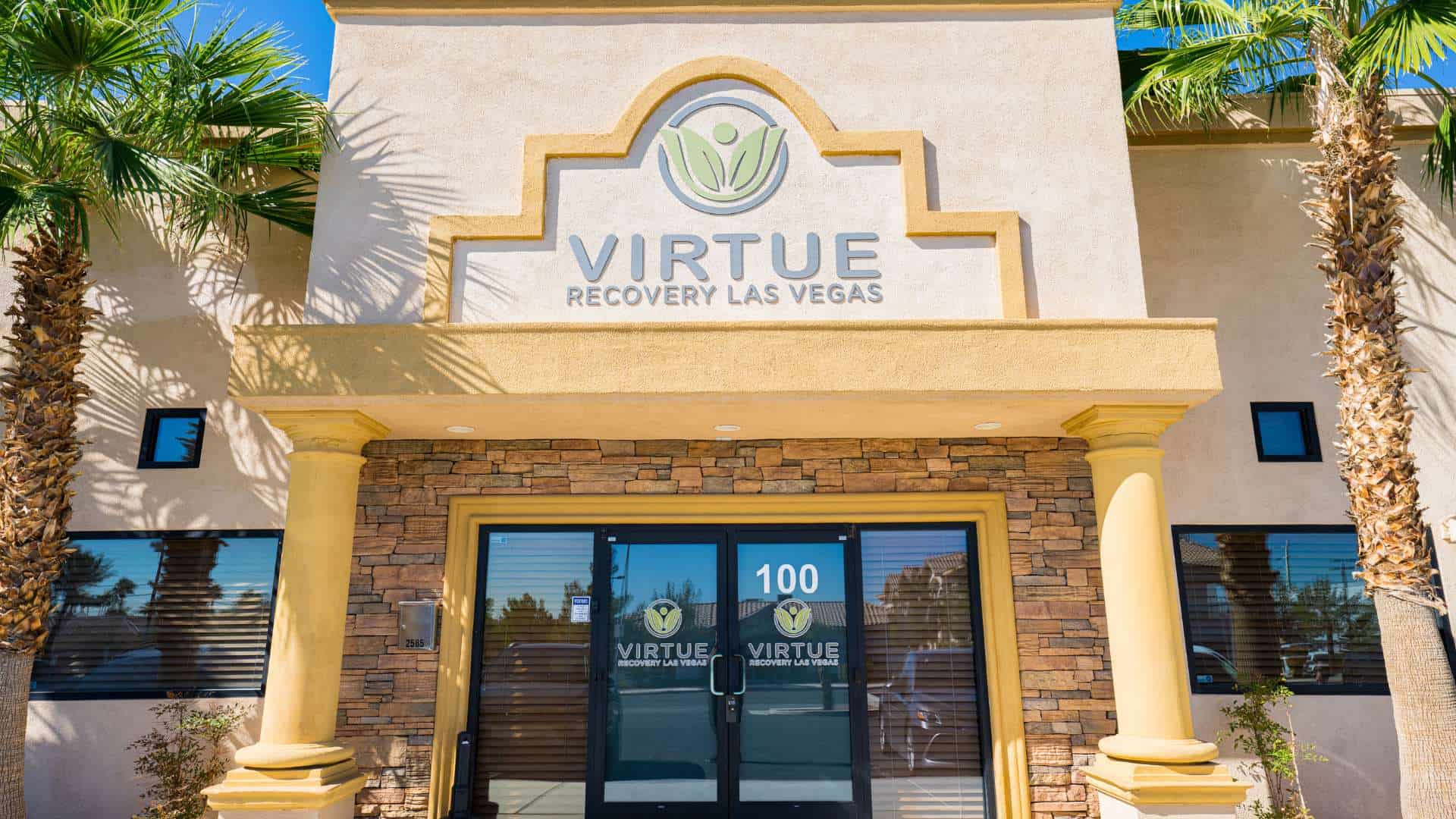
Our Las Vegas outpatient facility offers aftercare, IOP, and PHP with extended hours going from 8am to 8pm to allow clients more flexibility with their treatment. With a culturally sensitive trauma-informed care in a holistic environment clients can recover in an inclusive environment.
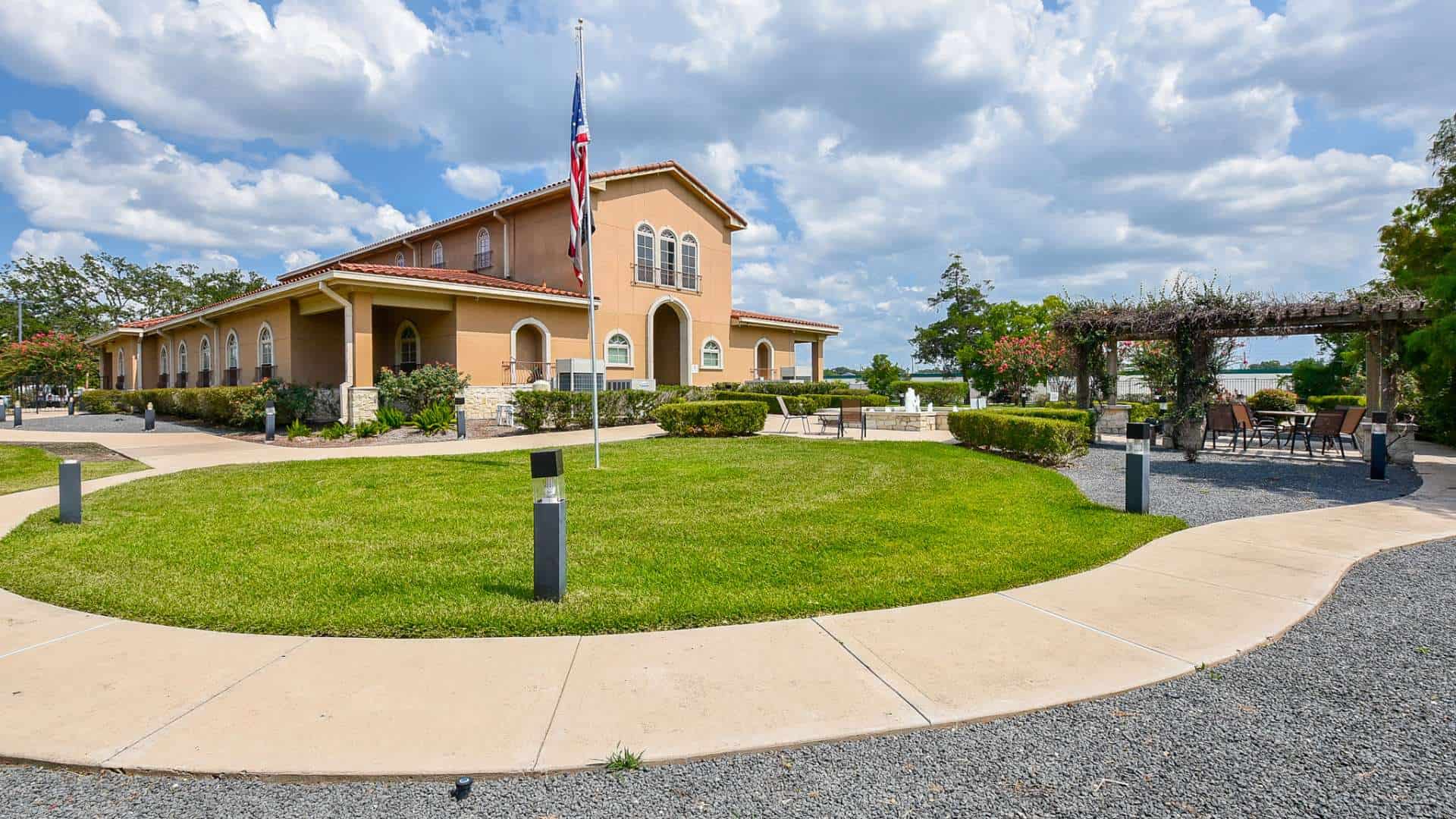
Virtue Recovery Houston is a premier inpatient rehab center offering residential addiction treatment and medical detox. Our expert team provides 24/7 care, evidence-based therapies, and personalized recovery plans to help you break free from addiction for good.
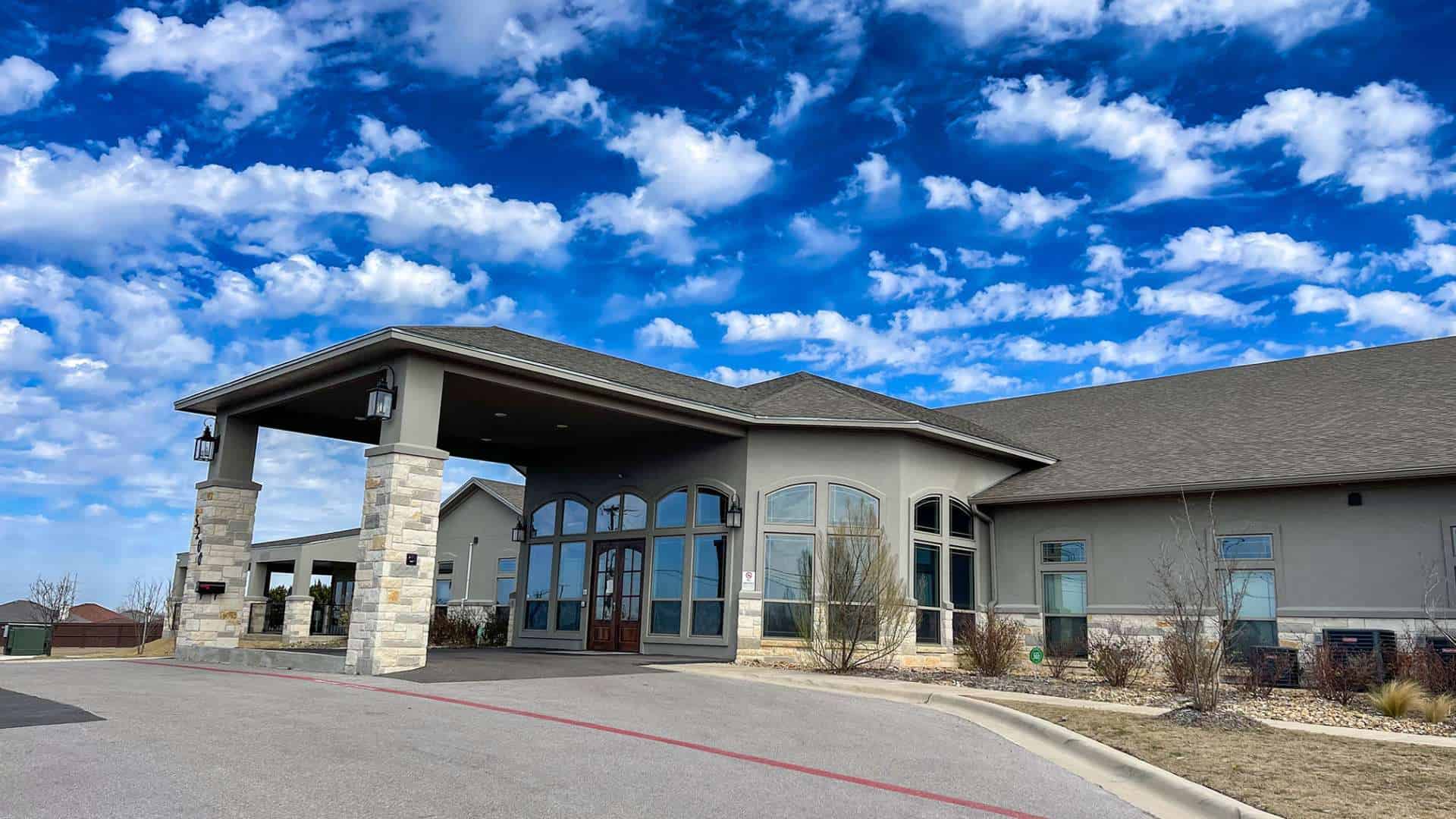
Break free from addiction in a high-end rehab environment at Virtue Recovery Killeen. We offer inpatient treatments like residential addiction treatment, medical detox, and holistic therapies in a setting designed for healing and long-term sobriety.

Recovery starts in the right environment. At Virtue Recovery Chandler, our inpatient treatment program is housed in a cul-de-sac of comfortable, private homes, allowing for personalized care, 24/7 medical support, and a distraction-free path to healing. We also offer outpatient services nearby in Gilbert.
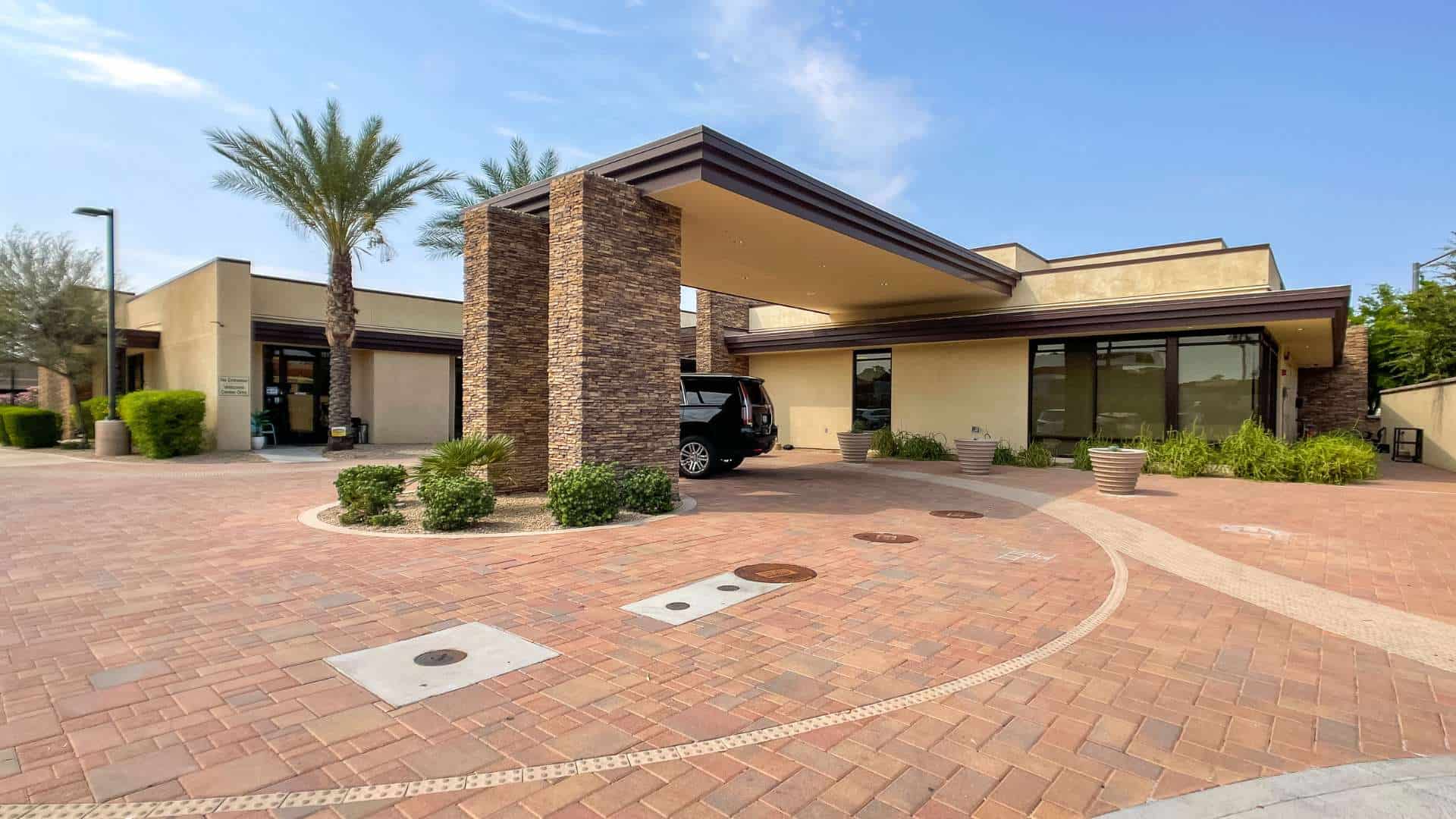
Virtue Detox Sun City West Arizona is a premier medical detox center, providing 24/7 medical supervision, medication-assisted treatment (MAT), and expert care in a safe, comfortable environment. Detox shouldn’t be a nightmare—we make it manageable, effective, and the first step toward real recovery.
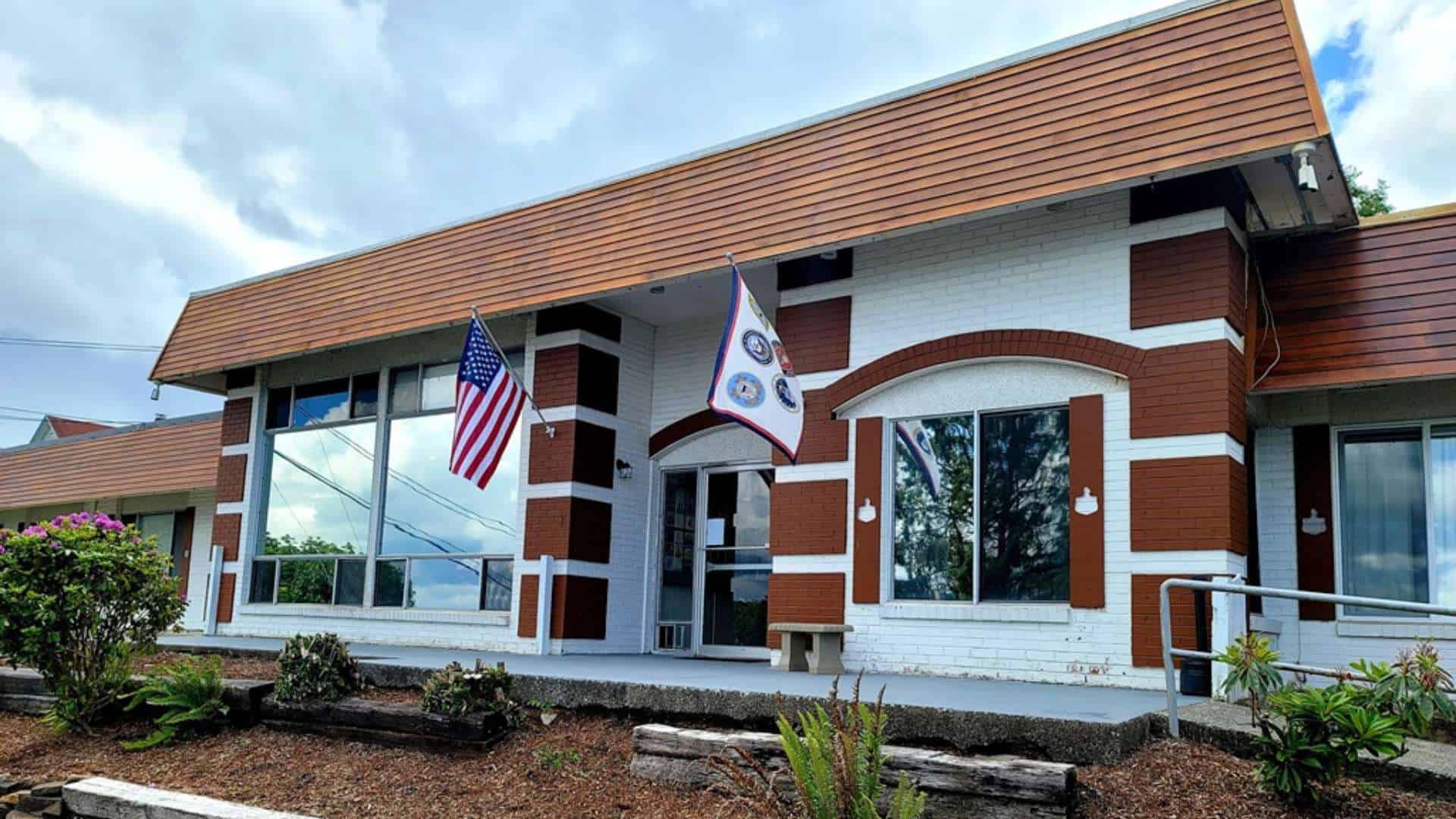
Located in the stunning Pacific Northwest, Virtue at The Pointe is a top-tier inpatient treatment center in Astoria, OR. We offer 24/7 medical support, personalized therapy, and a highly structured recovery program to help individuals break free from addiction and rebuild their lives. We specialize in Veterans Addiction Treatment.
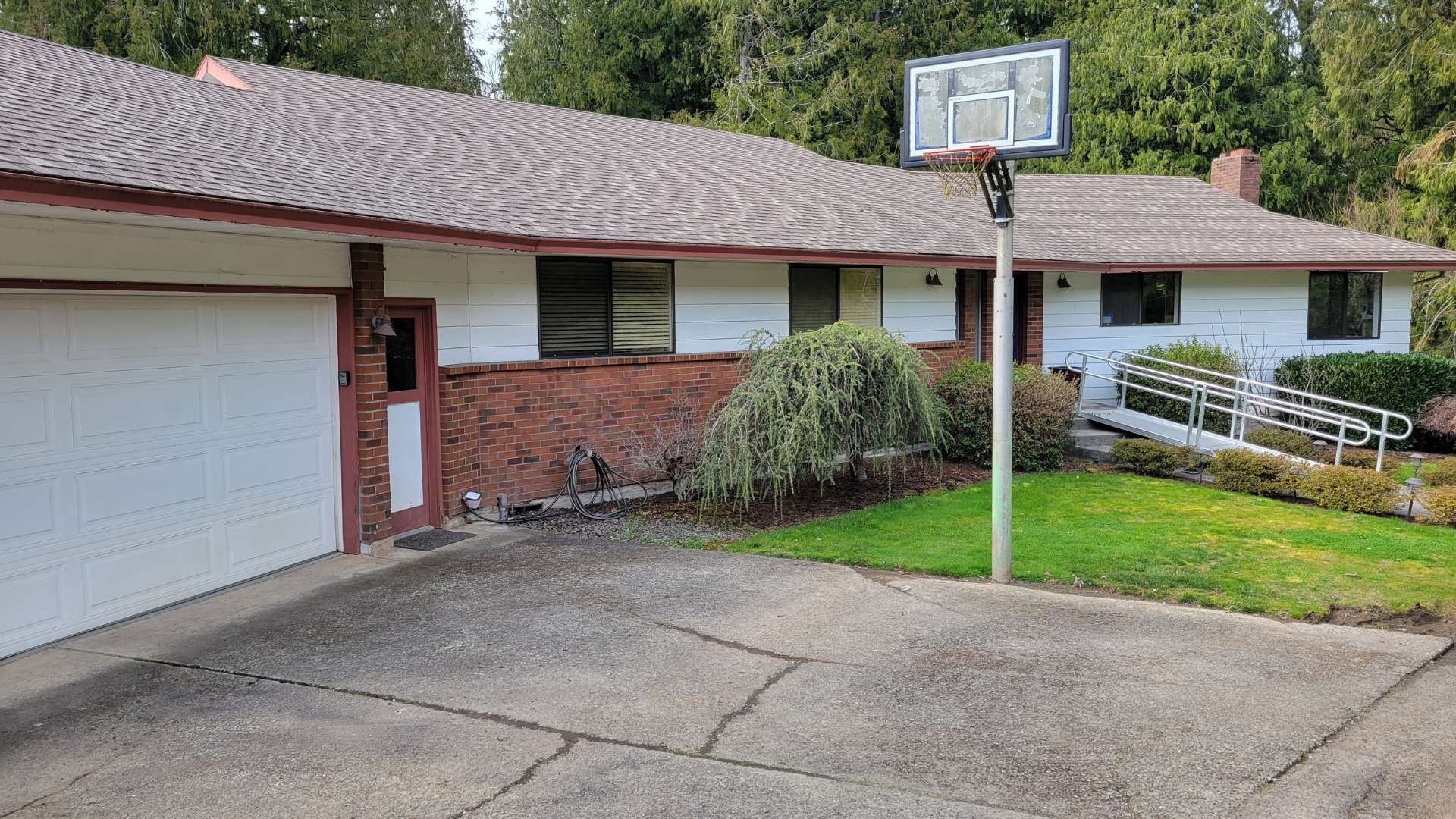
Outpatient treatment that feels like home. Virtue at The Pointe in Milwaukie, OR offers structured addiction recovery in a comfortable, home-like setting. Our converted homes provide a warm, supportive space for therapy, group work, and real-world healing—so you can recover while staying connected to your life.
If you have any further questions, please fill out this form. A member of our team will be able to help.
